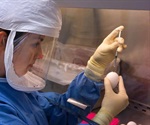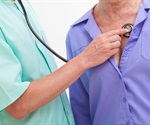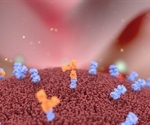
Latest Coronavirus Disease COVID 19 News and Research
Analysis: ‘Don’t be afraid of COVID’? Not buying it, unless businesses do job right
As stores, restaurants, airlines and offices try to lure clients back, this is what they need to do to earn my business: Make me feel safe — no, make me be as safe as possible. As I've begun to explore old haunts, some are doing a fabulous job. Others are not.
Easier-to-use coronavirus saliva tests start to catch on
As the coronavirus pandemic broke out across the country, health care providers and scientists relied on the standard method for detecting respiratory viruses: sticking a long swab deep into the nose to get a sample. The obstacles to implementing such testing on a mass scale quickly became clear.
Campus dorm resident assistants adjust to a new role: COVID cop
Breaking up parties, confiscating booze and answering noise complaints — being a resident adviser has always required a willingness to be the "bad guy" and uphold university policy despite the protests of friends and peers.
Older heavier COVID-19 positives likely to be superspreaders
The spread of SARS-CoV-2 is known to be through respiratory droplets as well as via aerosols, composed of minute particles normally exhaled during natural breathing.
SARS-COV-2 traveled from China to West Africa directly or via Europe
With the onset of COVID-19, the focus of medical research has been on tracing the origin of SARS-CoV-2, which was first reported in China’s Wuhan city.
SARS-CoV-2 prevalence in England “Higher than at any time from May 2020.”
The UK was badly hit by the COVID-19 pandemic, with the numbers of patients requiring hospitalization high during the first wave of the infection.
Chronic illnesses promote active SARS-CoV-2 infection via suppressed mucosal immunity
COVID-19 continues to spread in many parts of the world, and resurgences are occurring in some countries where it was thought to be successfully contained.
Plasma ACE2 concentration associated with increased risk of major cardiovascular events
A team of scientists at the Population Health Research Institute, Hamilton Health Sciences, and McMaster University, Hamilton, in Ontario, Canada, revealed that increased plasma ACE2 levels in the blood could indicate a higher risk of major cardiovascular events. The study is published in the journal The Lancet.
SARS-CoV-2 and anti-COVID-19 drugs activate Kaposi sarcoma-associated herpesvirus
A new study published on the preprint server bioRxiv* aimed to investigate the impacts of COVID-19 on people with various illnesses. Specifically, the researchers at the Rockefeller Cancer Institute, and the University of Arkansas for Medical Sciences wanted to see the effects of COVID-19 on patients with cancer and other infectious diseases.
COVID-19 increases flu vaccine acceptance in the U.K., study finds
In the United Kingdom, a team of researchers at Imperial College London has found that the coronavirus disease (COVID-19) pandemic, caused by the severe acute respiratory syndrome coronavirus 2 (SARS-CoV-2), has increased vaccination acceptance among the study participants. The research is published on the preprint server medRxiv.
New study expands treatment options for parents of autistic children
Training parents of children with autism spectrum disorder virtually about early behavioral intervention is an accessible and effective approach during the coronavirus pandemic or in other instances when in-person instruction is not possible, according to a Rutgers researcher.
Programs known to reverse the negative effects of poverty are being widely neglected, shows report
The coronavirus (COVID-19) pandemic has caused widespread harm to the health and well-being of already vulnerable children and adolescents in the U.S., particularly those in low-income households and children of color.
Antibiotic treatment is as good as appendectomy for a majority of adults with appendicitis
Seven of 10 adults with appendicitis can safely avoid surgical removal of their appendix (appendectomy) for at least several months by receiving a course of antibiotics, according to early results of a U.S. study that is the largest to compare use of these drugs alone versus an operation for appendicitis treatment.
Chronic illnesses promote active SARS-CoV-2 infection via suppressed mucosal immunity
A recent paper published in the preprint server medRxiv in September 2020 discusses the “clinically relevant variation in the expression of COVID-19-related genes”, which is associated with the host and environmental factors, as well as host genetic factors.
Thiopurines could help stop viral replication in human coronaviruses
Researchers from the Department of Microbiology & Immunology, Dalhousie University, University of Calgary, and Department of Biochemistry and Molecular Biology, University of British Columbia, Canada, worked with human coronaviruses in cell cultures to look for drugs that might prevent accumulation and replication of the severe acute respiratory syndrome coronavirus 2 (SARS-CoV-2).
Cats and dogs are low risk for SARS-CoV-2 transmission to humans
Researchers from the College of Veterinary Medicine and Biomedical Sciences, Colorado State University studied the possible transmission of the severe acute respiratory syndrome coronavirus 2 (SARS-CoV-2) among domestic cats and dogs.
Production of six monoclonal antibodies against SARS-CoV-2 spike protein
Youjia Guo et al. in a recent bioRxiv preprint paper demonstrate the robust performance of mouse anti-SARS-CoV-2 spike monoclonal antibodies in immunoassays, including western blotting, ELISA, immunofluorescence, and immunoprecipitation and also neutralizing activity in vitro against SARS-CoV-2 infection.
Development of a coarse-grained model of SARS-CoV-2 virion
A team of scientists of the University of Chicago and the University of California San Diego has developed a coarse-grained (CG) model of the severe acute respiratory syndrome coronavirus 2 (SARS-CoV-2) virion. The model can be used as a valuable resource to perform multiscale simulations of the SARS-CoV-2 virion. The study is currently available on the bioRxiv* preprint server.
Eli Lilly's LY-CoV555 antibody shows potential as COVID-19 treatment
Researchers in the United States and Canada have discovered a monoclonal antibody that potently neutralizes severe acute respiratory syndrome coronavirus 2 (SARS-CoV-2), the agent responsible for the current coronavirus disease 2019 (COVID-19) pandemic.
New findings could improve investigation of T cell response to COVID-19
Researchers in the United States have made an important discovery about the processing and presentation of severe acute respiratory syndrome coronavirus 2 (SARS-CoV-2) viral peptides that provides a better understanding of the immune response to coronavirus disease 2019 (COVID-19) and may help facilitate the design of improved vaccines.




_8ee6871adaea43ba99f2d722cc74d392-150x125.jpg)
_553bbc0365464e9d95f25ca3fe307ed1-150x125.jpg)
_ea575f0d038f4f93b44d632a9b79897f-150x125.jpg)
_2931be7405bf456085f0983cc8f965b3-150x125.jpg)
_e9827de099cf4d6fa0b7c756d91367d0-150x125.jpg)
_6a1f37e45ea64b86a98456205e1c581c-150x125.jpg)



_1bff1917dff2471dafac95c62d222256-150x125.jpg)
_865d64497a7046d385ab0ec45acd0af9-150x125.jpg)
_46134ae0c2f347fea38d3abcb0ae2d61-150x125.jpg)




































No hay comentarios:
Publicar un comentario